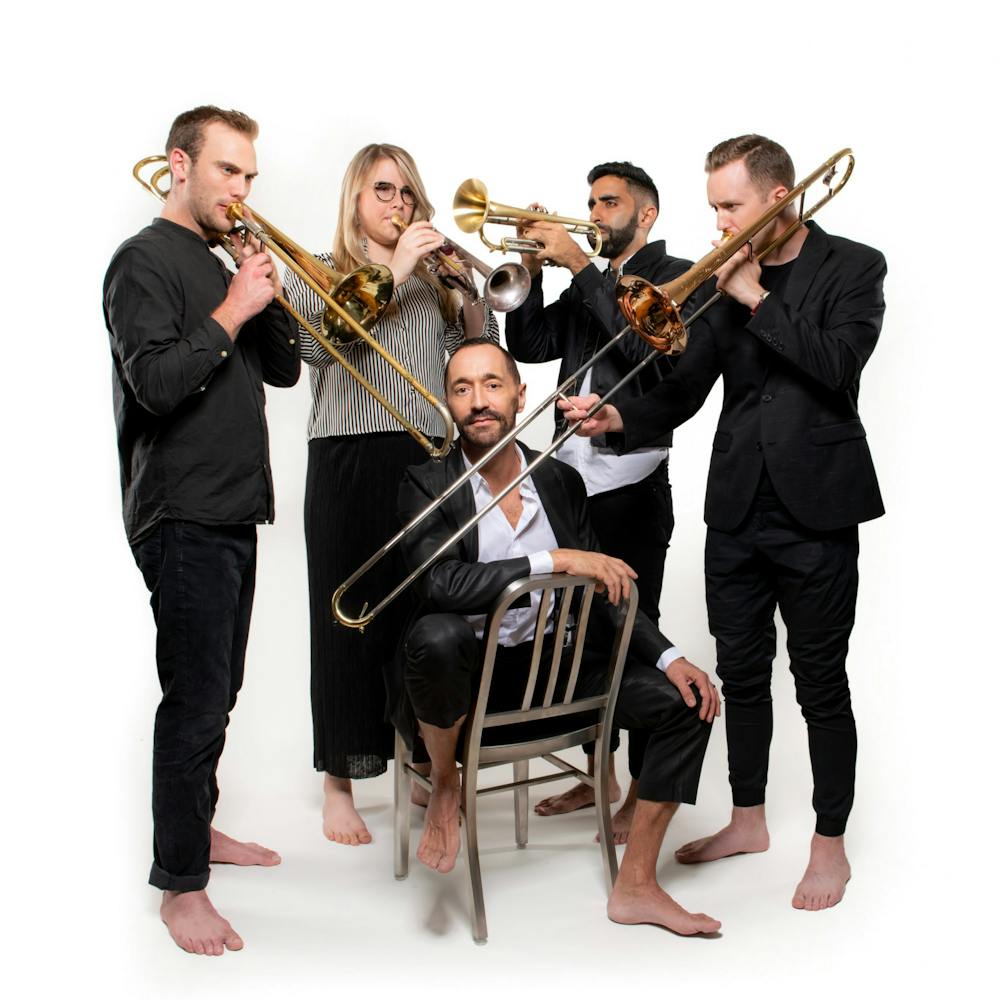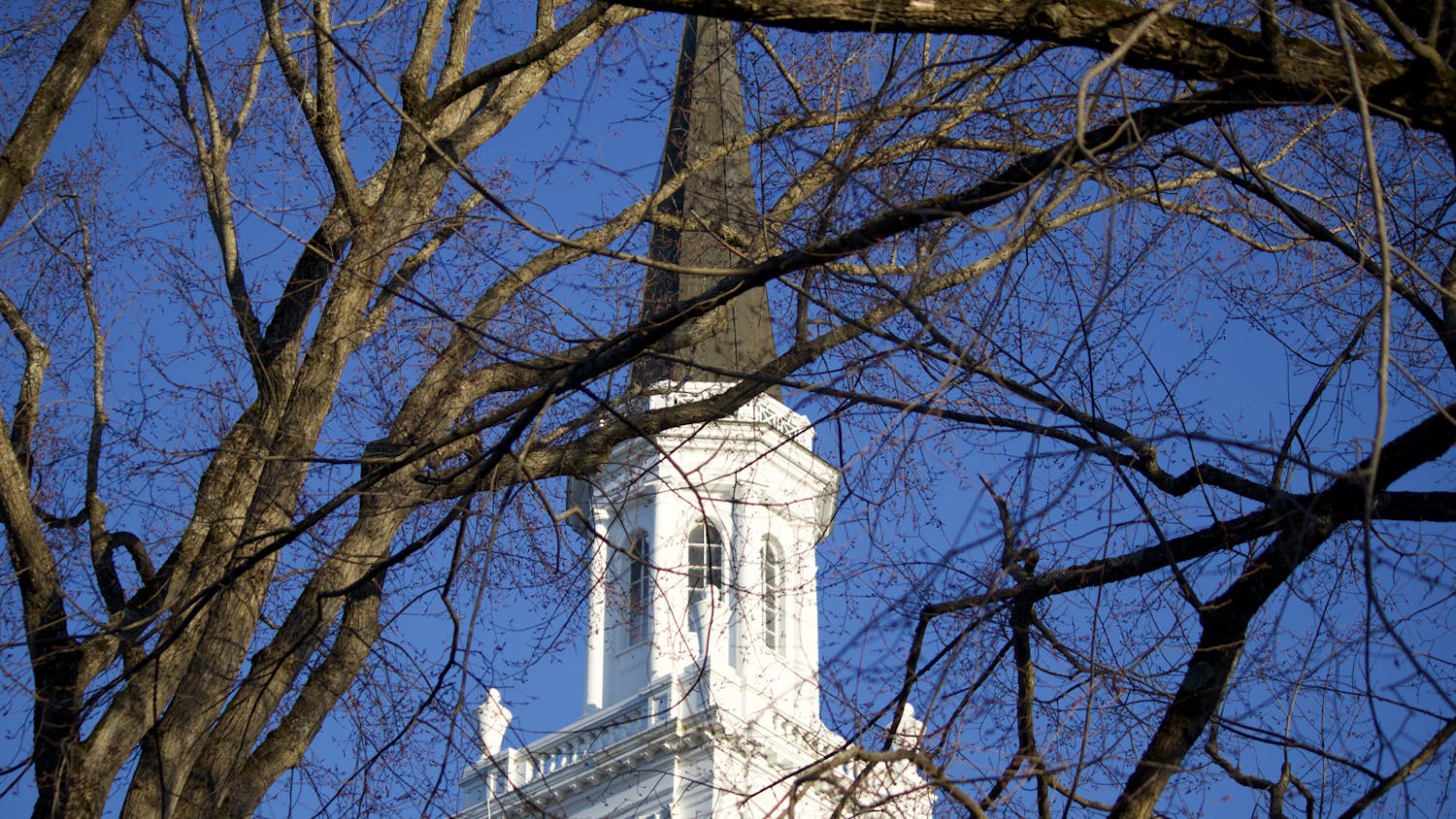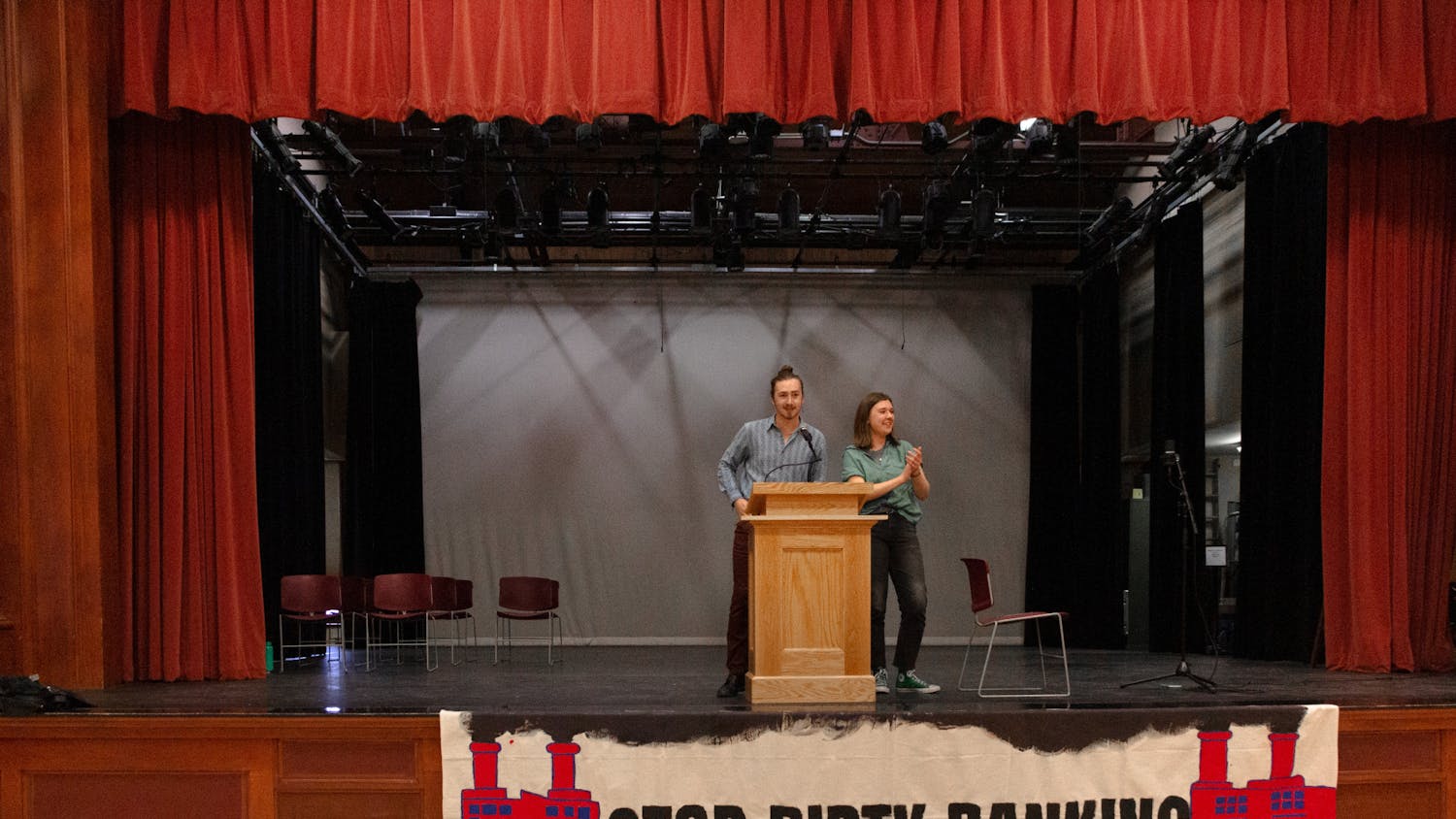Last week, Theo Bleckmann and The Westerlies were in residence in the Department of Music. Middlebury students passing through the halls may have heard horn sounds in unison emanating through the backstage of Robison Hall, where the esteemed German singer and brass quartet were rehearsing for their performance on Friday, April 7.
Leading up to the show, Middlebury music students were graced by the group’s talents in personal workshops. Bleckmann and The Westerlies organized a brief teaser of their show for Visiting Assistant Professor of Music Kyle Saulnier’s class, “American Popular Music,” at 8:15 a.m., walking in with an enthusiasm that contrasted the usual level of alertness of college kids attending morning classes.
The group’s current project on tour — based on their 2021 album “This Land” — reimagines and rearranges traditional American protest music, including songs by folk legend Woody Guthrie, who was a dogged advocate for socialism and anti-fascism in the early 20th century.
Saulnier’s course features Guthrie’s music in a unit on folk music, analyzing his impact on American social movements and the development of the American folk tradition. For example, Bob Dylan is famously inspired by Guthrie’s personal convictions and authentic way of singing.
Jon Jon March ’23.5 remarked on what it felt like to witness meaningful musicianship in a class. “To see them all work in coordination with each other while not overpowering [Bleckmann’s] voice — only projected through a tiny amplifier — took evident consideration and skill,” said March, who was moved by the social bent of the Westerlies’ music.
Consisting of two trumpeters (Riley Mulherkar and Chloe Rowlands) and two trombonists (Andy Clausen and Willem de Koch), the Westerlies shared their musical expertise with the college’s brass quintet, coaching them on breathing techniques and taking charge of their instruments. Asher Holton ’24.5, who plays tuba in the ensemble, was starstruck during the masterclass.
“The Westerlies were an incredible group to get to play with and learn from,” Holton said. “It’s as if they were able to read each other’s minds. They encouraged us to take risks and put ourselves out there.”
Such is an ethos for the Westerlies, who took their own risks in Friday’s performance by playing songs full of both earnest and irreverent political critique. Two of Guthrie’s more satirical tunes, “Tear the Fascists Down” and “The Jolly Banker,” served as brief brass interludes between longer pieces which centered Bleckmann’s vocals.
Along with their American standards were original arrangements and compositions, one of which was Bleckmann’s song “Another Holiday,” which he wrote in response to the mass shooting in 2016 at Pulse, a gay nightclub in Orlando, Fla. Rather than explicitly referring to the tragedy in the lyrics, Bleckmann wrote about the common experience of returning to family gatherings, as was clear in the line of the song referring to being “isolated from your family because of whom you love.”
Standing in front of his harmonically rich and tonally refined brass group, Bleckmann was able to actualize his lucid emotions, using pedal technology to loop and to distort his voice, resulting in ethereal soundscapes.
The performance merged modern sensibilities with the hard-nosed, pro-union attitude of a distant time in American history, where Guthrie and the American labor movement played a significant role in the political discourse of the Great Depression and post-Depression year. The Westerlies seek to teach history through sonic imagination, simultaneously revering and altering the musical forms which embody protest.
After the show, Bleckmann and the Westerlies met audience members outside of Robison Hall, selling their most recent LP, “Move,” featuring a namesake track which they debuted at Friday’s show.




